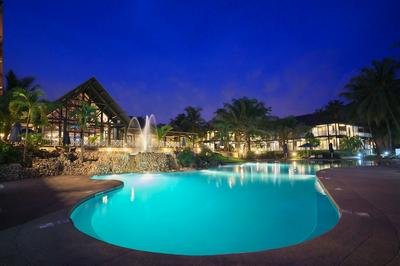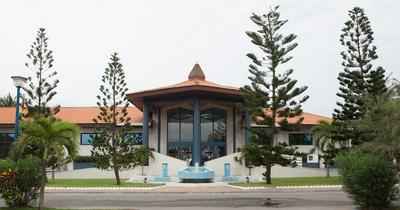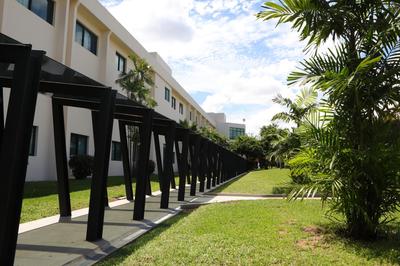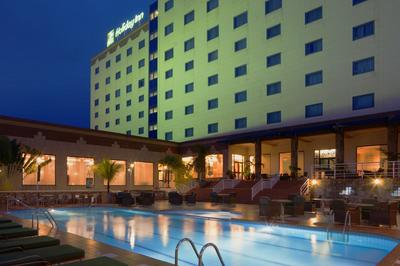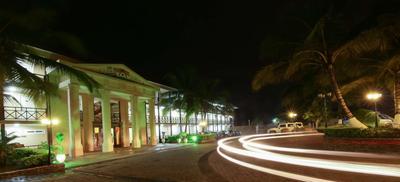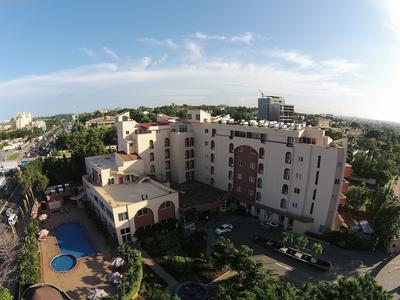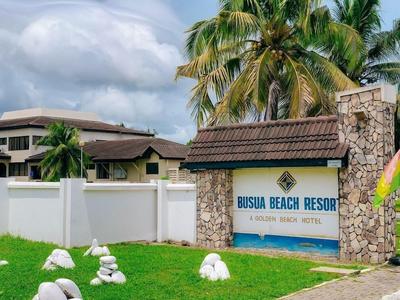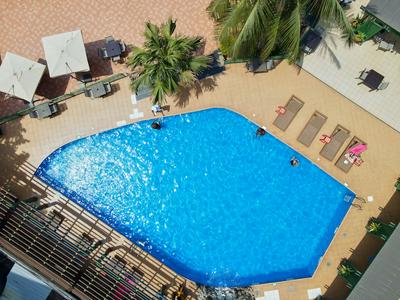When to visit Ghana during the year?
Ghana features a tropical climate with two primary seasons: the dry season (November to March) and the rainy season (April to October). The dry season is the best time for tourism, offering comfortable temperatures and low humidity. During this period, attractions such as the Kakum National Park, with its canopy walkways, and the coastal region, including Accra and Cape Coast's stunning beaches, see the most visitors. Rainy months may deter some, but they bring lush landscapes, making it a vibrant time for cultural festivals like Homowo in August. The average temperatures range from 25°C to 35°C, making any time enjoyable if you plan accordingly.
How to get to Ghana?
Getting to Ghana is quite straightforward, with numerous international connections. The country is served primarily by Kotoka International Airport in Accra, which has flights from all over the world. Buses and road travel are popular among regional travelers, connecting neighboring countries. For some, renting a car can provide flexibility in exploring Ghana’s diverse landscapes.
- Main airports include Kotoka International Airport (ACC) in Accra.
- Major international routes connect from North America (Newark Liberty International Airport), Europe (London Heathrow), Asia (Dubai International Airport), and Africa (Abuja International Airport).
- Low-cost airlines like Air Peace and others operate within regional markets.
- Flight times range approximately from 12 hours (from New York) to 7 hours (from London).
- Main stations include the Kwame Nkrumah Circle in Accra.
- Buses connect major cities like Kumasi, Takoradi, and Tamale, with frequent departures.
- Currently, there is limited international train service, primarily connecting within cities.
- Routes such as Takoradi to Kumasi provide scenic views.
- Main highways connect Accra to Tamale and Kumasi.
- Distances are manageable; for example, Accra to Kumasi is about 250 km (approx 5-hour drive).
- Road conditions vary, with popular routes being mostly paved but may have tolls.
Tourist activities in Ghana
Ghana offers a rich tapestry of activities for travelers with diverse interests. For adventure seekers, Kakum National Park presents thrilling canopy walks above the forest floor, while the Volta Region invites hiking enthusiasts to ascend Mt. Afadja, the highest mountain in Ghana. History buffs can explore Cape Coast Castle and Elmina Castle, poignant reminders of the transatlantic slave trade. For those interested in culture, the annual Panafest in Cape Coast and the traditional festivals in various regions provide a vibrant taste of Ghanaian kinship and heritage. Beach lovers will find solace in the beautiful coastlines of Busua and Labadi, while art enthusiasts can visit the bustling Art Centre in Accra. Nightlife in cities like Accra offers various bars and clubs, showcasing local music, including Afrobeat and Highlife.
Accommodation in Ghana
Accommodation in Ghana ranges from luxury hotels to budget-friendly guesthouses and rentals. In Accra, hotels like Labadi Beach Hotel offer oceanfront amenities at around $150–$300 per night, while home-stay options are available for $30–$90. In cities like Kumasi or Tamale, more economical guesthouses can charge as low as $25 a night. Seasonal variations can affect prices, especially during major events or festivals, so booking in advance is advisable. Also, eco-lodges in places like Kakum National Park or eco-friendly hotels in eco-tourism hotspots provide unique experiences. Hostels can also be found for younger travelers or those on a budget.
Food in Ghana
Ghanaian cuisine is a delightful mix of rich flavors and hearty ingredients. Iconic dishes include Jollof rice, a party favorite, and Fufu, a traditional dish served with rich soups such as light soup or groundnut soup. Street food is abundant, with options like Kelewele (spicy fried plantains) and Waakye (rice and beans) typically costing around $2–$5. For drinks, try palm wine or the zesty Sobolo, a hibiscus-flavored drink widely enjoyed. You'll find numerous local restaurants and vibrant food markets in cities like Accra, where dining experiences cater to both local and international tastes.
Important numbers and information
- Emergency Services: Police – 191, Ambulance – 193, Fire Brigade – 192
- Embassy Contacts: U.S. Embassy – 10 Airport Road, Accra; UK High Commission – No 24, Fourth Circular Road, Cantonments
- Main Airport: Kotoka International Airport (ACC), Airport City, Accra
- Currency: Ghanaian Cedi (GHS), Cash and cards widely accepted
- Visa/Passport: Visa required for most travelers; check your passport's validity before travel.
What to see in Ghana?
Ghana is steeped in history, culture, and natural beauty. Key cities include Accra, where you can explore the Kwame Nkrumah Mausoleum and the bustling markets. Kumasi, known for its rich Ashanti culture, features the Manhyia Palace and vibrant craft markets. The coastal town of Cape Coast is home to historical slave forts, while the artistic hub of Art Centre in Accra showcases local artisans. Nature lovers should not miss Kakum National Park’s stunning canopy walk and the serene Lake Volta. The unique landscapes of the Volta Region, including waterfalls and mountain landscapes, add to the must-see list.
History, geography and climate
Ghana boasts a rich history marked by ancient kingdoms, colonial rule, and a dynamic journey to independence in 1957. Geographically, it features coastal plains, savannah regions, and the lush forests of the Ashanti region. The climate is predominantly tropical, with average temperatures ranging from 21°C to 30°C year-round. The coastal areas experience a more stable climate, while the northern regions can be hotter and drier. Key geographical landmarks include Lake Volta, one of the largest artificial lakes in the world, and an array of national parks that protect Ghana's diverse wildlife.
Population and culture
With a population of approximately 31 million, Ghana is known for its ethnic diversity, including groups like the Akan, Mole-Dagbani, and Ewe. English is the official language, but many dialects are spoken, such as Twi and Ewe, reflecting cultural uniqueness. Religions in Ghana are diverse, with Christianity and Islam as the predominant faiths, complemented by indigenous beliefs. Cultural traditions are rich, showcasing vibrant festivals, traditional dances, and colorful clothing. Unique events like the Homowo and Edina Bakatue festivals capture the essence of Ghanaian heritage and community spirit, highlighting the importance of family and ancestry in everyday life.

